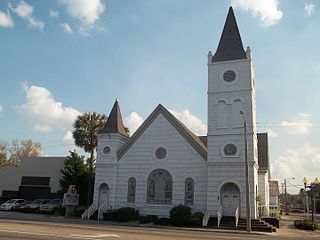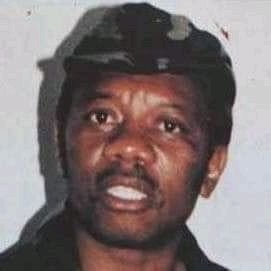Related Research Articles

Baptists form a major branch of Evangelical Christianity distinguished by baptizing professing Christian believers only, and doing so by complete immersion. Baptist churches also generally subscribe to the doctrines of soul competency, sola fide, sola scriptura and congregationalist church government. Baptists generally recognize two ordinances: baptism and communion.

Calvinism is a major branch of Protestantism that follows the theological tradition and forms of Christian practice set down by John Calvin and other Reformation-era theologians. It emphasises the sovereignty of God and the authority of the Bible.

Evangelicalism, also called evangelical Christianity or evangelical Protestantism, is a worldwide interdenominational movement within Protestant Christianity that maintains the belief that the essence of the Gospel consists of the doctrine of salvation by grace alone, solely through faith in Jesus' atonement. Evangelicals believe in the centrality of the conversion or "born again" experience in receiving salvation, in the authority of the Bible as God's revelation to humanity, and in spreading the Christian message. The movement has long had a presence in the Anglosphere before spreading further afield in the 19th, 20th and early 21st centuries.

The Holiness movement involves a set of Christian beliefs and practices that emerged chiefly within 19th-century Methodism, and to a lesser extent other traditions such as Quakerism, Anabaptism, and Restorationism. The movement is Wesleyan in theology, and is defined by its view of personal sin, and emphasis on the doctrine of a second work of grace generally called entire sanctification or Christian perfection. For the Holiness Movement "the term 'perfection' signifies completeness of Christian character; its freedom from all sin, and possession of all the graces of the Spirit, complete in kind." A number of evangelical Christian denominations, parachurch organizations, and movements emphasize those beliefs as central doctrine.

The Church of God is a holiness Christian denomination with roots in Wesleyan-Arminianism and also in the restorationist traditions. The organization grew out of the evangelistic efforts of several Holiness evangelists in Indiana and Michigan in the early 1880s, most notably Daniel Sidney Warner.

The following outline is provided as an overview of and topical guide to Christian theology:
The Social Gospel is a social movement within Protestantism that aims to apply Christian ethics to social problems, especially issues of social justice such as economic inequality, poverty, alcoholism, crime, racial tensions, slums, unclean environment, child labor, lack of unionization, poor schools, and the dangers of war. It was most prominent in the early-20th-century United States and Canada. Theologically, the Social Gospelers sought to put into practice the Lord's Prayer : "Thy kingdom come, Thy will be done on earth as it is in heaven". They typically were postmillennialist; that is, they believed the Second Coming could not happen until humankind rid itself of social evils by human effort. The Social Gospel was more popular among clergy than laity. Its leaders were predominantly associated with the liberal wing of the progressive movement, and most were theologically liberal, although a few were also conservative when it came to their views on social issues. Important leaders included Richard T. Ely, Josiah Strong, Washington Gladden, and Walter Rauschenbusch.

The African Methodist Episcopal Zion Church, or the AME Zion Church (AMEZ) is a historically African-American Christian denomination based in the United States. It was officially formed in 1821 in New York City, but operated for a number of years before then. The African Methodist Episcopal Zion Church adheres to Wesleyan-Arminian theology.

The Fourth Great Awakening was a Christian awakening that some scholars – most notably economic historian Robert Fogel – say took place in the United States in the late 1960s and early 1970s, while others look at the era following World War II. The terminology is controversial, with many historians believing the religious changes that took place in the US during these years were not equivalent to those of the first three great awakenings. Thus, the idea of a Fourth Great Awakening itself has not been generally accepted.
Because scholars have tended to use the term in different ways, Biblical theology has been notoriously difficult to define.
Prosperity theology is a religious belief among some Protestant Christians that financial blessing and physical well-being are always the will of God for them, and that faith, positive speech, and donations to religious causes will increase one's material wealth.

James Hal Cone was an American theologian, best known for his advocacy of black theology and black liberation theology. His 1969 book Black Theology and Black Power provided a new way to comprehensively define the distinctiveness of theology in the black church. His message was that Black Power, defined as black people asserting the humanity that white supremacy denied, was the gospel in America. Jesus came to liberate the oppressed, advocating the same thing as Black Power. He argued that white American churches preached a gospel based on white supremacy, antithetical to the gospel of Jesus. Cone's work was influential from the time of the book's publication, and his work remains influential today. His work has been both used and critiqued inside and outside the African-American theological community. He was the Charles Augustus Briggs Distinguished Professor of Systematic Theology at Columbia University-affiliated Union Theological Seminary until his death.
Black Hebrew Israelites are groups of African Americans who believe that they are the descendants of the ancient Israelites. Some sub-groups believe that also Native and Latin Americans are descendants of the Israelites as well. Black Hebrew Israelites combine elements to their teaching from a wide range of sources: to varying degrees, Black Hebrew Israelites incorporate certain aspects of the religious beliefs and practices of both Christianity and Judaism, though they have created their own interpretation of the Bible, and other influences include Freemasonry and New Thought, for example. Many choose to identify as Hebrew Israelites or Black Hebrews rather than Jews in order to indicate their claimed historic connections.
Black theology, or black liberation theology, refers to a theological perspective which originated among African-American seminarians and scholars, and in some black churches in the United States and later in other parts of the world. It contextualizes Christianity in an attempt to help those of African descent overcome oppression. It especially focuses on the injustices committed against African Americans and black South Africans during American segregation and apartheid, respectively.

In Christianity, the gospel or good news is the news of the imminent coming of the Kingdom of God. This message is expounded upon as a narrative in the four canonical gospels, and as theology in many of the New Testament epistles. As theology it is expanded, and related to the death by crucifixion of Jesus. It perceives this as saving acts of God due to the work of Jesus on the cross and Jesus' resurrection from the dead which bring reconciliation between people and God.

The black church is the faith and body of Christian congregations and denominations in the United States that minister predominantly to African Americans, as well as their collective traditions and members. The term "black church" can also refer to individual congregations.

The Apostolic Faith Mission of South Africa (AFM) is a classical Pentecostal Christian denomination in South Africa. With 1.2 million adherents, it is South Africa's largest Pentecostal church and the fifth largest religious grouping in South Africa representing 7.6 percent of the population. Dr. Isak Burger has led the AFM as president since 1996 when the white and black branches of the church were united. It is a member of the Apostolic Faith Mission International, a fellowship of 23 AFM national churches. It is also a member of the South African Council of Churches.

Religion of black Americans refers to the religious and spiritual practices of African Americans. Historians generally agree that the religious life of black Americans "forms the foundation of their community life". Before 1775 there was scattered evidence of organized religion among black people in the Thirteen Colonies. The Methodist and Baptist churches became much more active in the 1780s. Their growth was quite rapid for the next 150 years, until their membership included the majority of black Americans.
Douglas E. Moore was a Methodist minister who organized the 1957 Royal Ice Cream Sit-in in Durham, North Carolina. Moore entered the ministry at a young age. After finding himself dissatisfied with what he perceived as a lack of action among his divinity peers, he decided to take a more activist course. Shortly after becoming a pastor in Durham, Moore decided to challenge the city's power structure via the Royal Ice Cream Sit-in, a protest in which he and several others sat down in the white section of an ice cream parlor and asked to be served. The sit-in failed to challenge segregation in the short run, and Moore's actions provoked a myriad of negative reactions from many white and African-American leaders, who considered his efforts far too radical. Nevertheless, Moore continued to press forward with his agenda of activism.

Sabelo Victor Phama was an Anti-Aparthaid Activist, Military Commander of Azanian People's Liberation Army APLA and Secretary of Defense in the Pan African Congress PAC. He was a South African revolutionary.
References
- ↑ Sabelo Ntwasa and Basil Moore, “The Concept of God In Black Theology,” in Black Theology: The South African Voice, pp. 18–28.